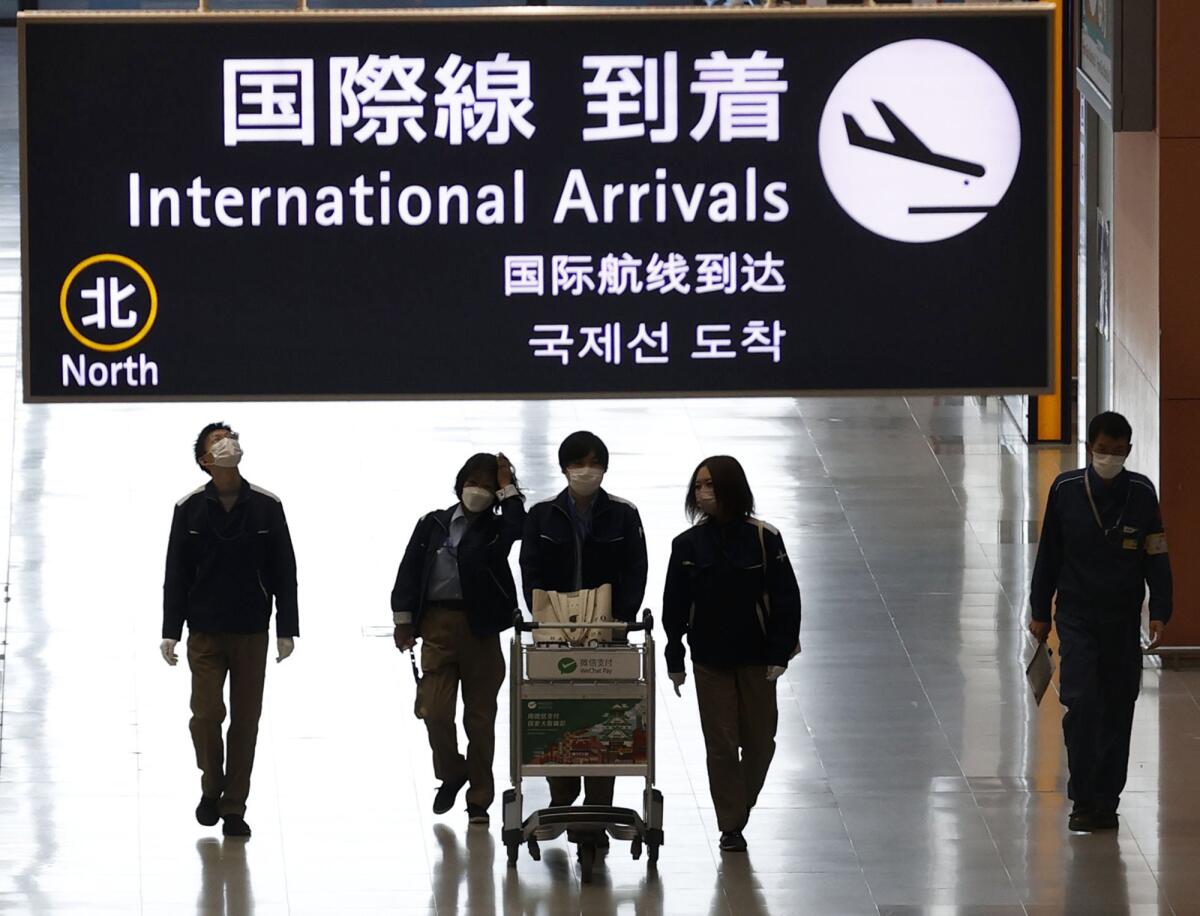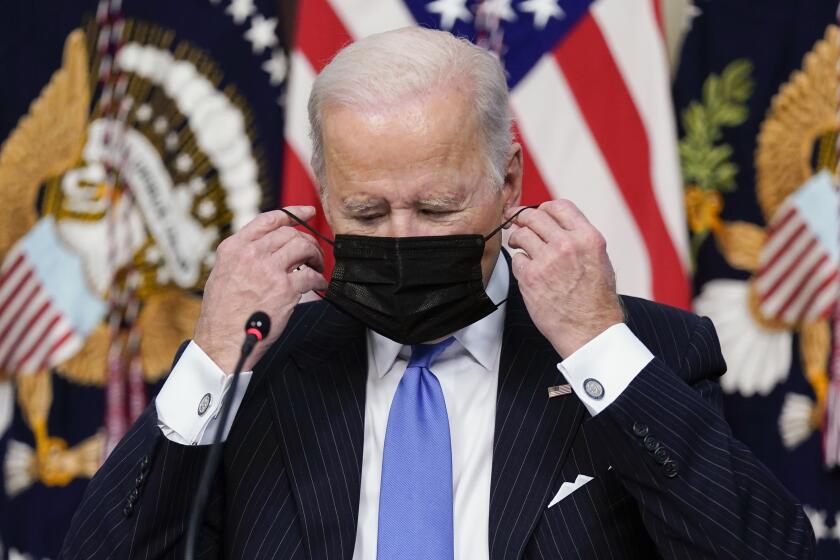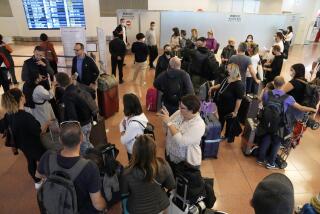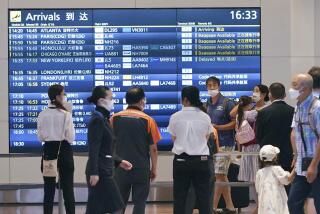A day after announcing travel ban, Japan confirms its first Omicron variant case

TOKYO — Japan on Tuesday confirmed its first case of infection from the new Omicron coronavirus variant, detecting it in a Namibian diplomat who recently arrived from his country, officials said.
Officials said the patient, who is in his 30s, tested positive upon arrival at Tokyo’s Narita airport Sunday and was isolated and is being treated at a hospital.
On Monday, Japan announced that it would ban all foreign visitors as an emergency precaution against the Omicron variant, tentatively through the end of the year. The travel ban began Tuesday. The government is also requiring Japanese nationals and foreigners with resident permits to quarantine 14 days following entry.
A genome analysis at the National Institute of Infectious Diseases confirmed Tuesday that the Namibian diplomat was infected with the new variant, which was first identified in South Africa.
The patient initially showed no symptoms but now has a fever, Japanese Health Minister Shigeyuki Goto said. Health ministry officials said the man had received his second Moderna vaccine dose in July.
Seventy other passengers on the man’s flight, including two of his family members, were identified as having close contact, but they have all tested negative and are self-isolating while being monitored remotely by Japanese health authorities. If they do not cooperate, their names will be released as a penalty, Goto said.
As scientists study the Omicron variant, President Biden strives to show he can still control an evolving pandemic threat.
Ten crew members of the plane did not enter Japan and continued their flight to another destination.
The 40 Tokyo residents identified as having close contact with the patient are being required to quarantine in facilities designated by the Tokyo metropolitan government instead of in their homes, Tokyo Gov. Yuriko Koike told reporters.
Chief Cabinet Secretary Hirokazu Matsuno said the government would maintain strict border controls and step up its capacity to conduct genome analyses of the new variant.
The World Health Organization warned Monday that the global risk from the Omicron variant is “very high” based on the early evidence, saying it could lead to surges with “severe consequences.”
The U.S. Centers for Disease Control and Prevention on Monday strengthened its recommendations on who should get boosters.
Despite the lack of information about the new variant, Japan will start giving COVID-19 booster shots Wednesday as scheduled to those who have completed vaccination at least eight months ago, officials said.
The new variant comes just as Japan was expanding its business and social activity following a sharp decline of new daily coronavirus cases. So far, Japan has retightened only its border controls. On Tuesday, the country reported just 76 new cases nationwide, for a cumulative total of 1.72 million cases and 18,351 deaths.
On Tuesday, Japan’s Self Defense Force closed down its mass inoculation center, which was launched in late May to help bolster a nationwide vaccination drive. About 77% of Japanese have been fully vaccinated.
More to Read
Sign up for Essential California
The most important California stories and recommendations in your inbox every morning.
You may occasionally receive promotional content from the Los Angeles Times.












